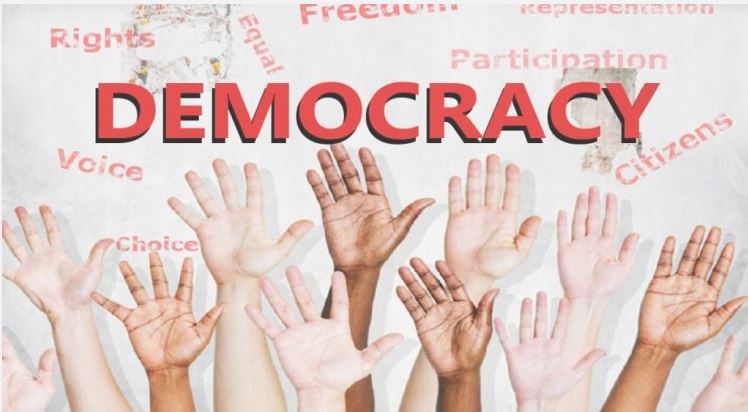Nigeria’s Foreign Policy: A Critical Assessment and Recommendations for Improvement
Nigeria’s return to democratic rule in 1999 heralded a new era of hope and optimism, with expectations of enhanced international influence and engagement. However, more than two decades later, these aspirations remain largely unfulfilled. Political scientists argue that democracy has not significantly impacted Nigeria’s foreign policy, leading to concerns about the country’s diminished stature on the global stage. This analysis examines the current state of Nigeria’s foreign relations, identifies the underlying challenges, and proposes a comprehensive roadmap for revitalizing its foreign policy.
A key concern is the declining influence of Nigeria within Africa, particularly in the West African sub-region. While Nigeria historically played a leading role in continental affairs, its influence has waned, raising questions about its capacity to command respect and effectively address regional challenges. This diminished standing is further exemplified by the perceived subservient relationship with China, marked by agreements that have raised concerns among Nigerian citizens. While relations with the West appear relatively cordial, questions linger regarding Nigeria’s level of independence in these partnerships. The inconsistent and often critical stance of the Trump administration towards Nigeria underscored the vulnerability of the country’s foreign policy to external pressures.
The root of Nigeria’s foreign policy challenges lies within its domestic sphere. The political scientists argue that a country’s domestic environment significantly shapes its external image. Internal issues, including political instability, corruption, and economic struggles, project a negative image abroad, undermining Nigeria’s international credibility and influence. This interconnectedness between domestic realities and foreign policy outcomes necessitates a comprehensive approach to address the underlying issues.
To reverse this trend, a multi-pronged strategy is required. Firstly, a comprehensive foreign policy review is essential. This review should align Nigeria’s foreign policy objectives with current international dynamics, ensuring relevance and effectiveness. Adequate funding for foreign policy initiatives is crucial to empower diplomatic efforts and enhance Nigeria’s engagement on the global stage. Strengthening the research arm of the Ministry of Foreign Affairs is vital for informed decision-making and strategic planning. A robust research capacity will enable Nigeria to anticipate and respond effectively to evolving global challenges.
Democratizing foreign policy is another critical step. This involves engaging a broader spectrum of Nigerian society in foreign policy discussions, fostering a sense of ownership and national consensus. Public debates and access to information on foreign policy matters are essential for promoting transparency and accountability. Addressing pressing domestic concerns is paramount. By tackling internal challenges, Nigeria can project a more stable and positive image abroad, enhancing its international credibility.
A critical assessment of Nigeria’s membership in international organizations is also necessary. Prioritizing organizations that enhance national visibility and align with Nigeria’s strategic interests will optimize resource allocation and maximize impact. Clarifying the thrust of Nigeria’s foreign policy is vital for effective communication and mobilization. A clear and well-defined foreign policy framework will provide direction and coherence to Nigeria’s international engagements.
Furthermore, reworking foreign policy objectives to make them more transparent and measurable is crucial for accountability and evaluation. This includes amending the 1999 Constitution to incorporate specific and measurable foreign policy goals, enabling progress to be tracked and evaluated.
In conclusion, the effectiveness of Nigeria’s foreign policy is inextricably linked to its domestic environment. Addressing internal challenges is paramount for enhancing Nigeria’s international standing and achieving its foreign policy objectives. A comprehensive review, increased funding, democratization of foreign policy, and a focus on domestic issues are crucial steps towards revitalizing Nigeria’s foreign policy and restoring its influence on the global stage. By implementing these recommendations, Nigeria can reclaim its position as a leading player in African and international affairs.
The lack of progress in achieving Nigeria’s foreign policy goals since the return to democracy in 1999 underscores the need for a paradigm shift. The current approach has proven inadequate, and a more proactive and strategic approach is essential. This requires a fundamental reassessment of Nigeria’s foreign policy priorities, mechanisms, and resources. A robust and well-defined foreign policy framework will provide a roadmap for navigating the complexities of the international arena.
The challenges facing Nigeria’s foreign policy are multifaceted and require a comprehensive and integrated approach. Simply tweaking existing policies or increasing funding will not suffice. A deeper understanding of the interconnectedness between domestic and foreign policy is essential for developing effective solutions. By addressing the root causes of Nigeria’s foreign policy challenges, the country can unlock its full potential on the global stage.
The recommendations put forward by political scientists offer a practical and comprehensive framework for revitalizing Nigeria’s foreign policy. These recommendations are not merely theoretical suggestions but actionable steps that can be implemented to achieve tangible results. The key to success lies in the political will and commitment to implement these recommendations effectively.
Nigeria’s foreign policy should be a reflection of its national interests and values. It should be a tool for promoting peace, security, and development, both within Africa and globally. By aligning its foreign policy with its national aspirations, Nigeria can play a more constructive and influential role in international affairs.
The international community has a vested interest in Nigeria’s success. A stable, prosperous, and democratic Nigeria is essential for regional stability and global peace. Supporting Nigeria’s efforts to strengthen its foreign policy is not only in Nigeria’s interest but also in the interest of the wider international community.
In the final analysis, the future of Nigeria’s foreign policy depends on the collective efforts of its government, citizens, and international partners. By working together, they can transform Nigeria’s foreign policy into a powerful instrument for achieving its national goals and contributing to a more just and peaceful world. The time for action is now.


